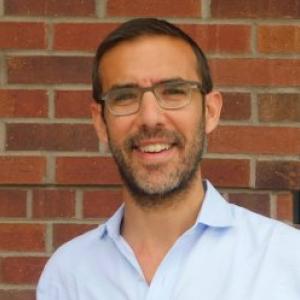Notes from the Director, Fall 2018

Joshua Weitz
We have many exciting plans in place for the year, including expanded, bilingual instructional materials for the ‘Foundations’ course (in MATLAB and Python), a Hands-On Workshop in Quantitative Biosciences in Spring 2019, as well as our first Thesis Disse
The Quantitative Biosciences Ph.D. is proud to welcome its third cohort to the Georgia Institute of Technology. The incoming class of nine students joins us from the United States, Europe, Latin America, and Asia. Like the cohorts before them, the new students are immersed in courses, including the cornerstone course in Foundations of Quantitative Biosciences. This new cohort is also beginning to take initial steps towards identifying Spring 2019 rotations with QBioS faculty. And, as the new QBioS cohort begins, last year’s cohort have identified thesis advisers and are scheduling their initial thesis committee meetings to be held this Fall.
Notably, this Fall also marks the transition point for the inaugural QBioS cohort who are in the midst of submitting and defending their thesis proposals. These proposals constitute the basis for the Quantitative Biosciences Ph.D. personalized qualifying examination, including a written proposal, a public talk, and an oral examination. QBioS remains a (relatively) new interdisciplinary program and its proposal format warrants some elaboration.
The objective of the qualifying examination is to examine student understanding of the research background, their preliminary findings, the logic and likelihood underpinning their research plans, and contextualization of how their research could make an impact in discovering principles of living systems. The proposal talk is public, for reasons I’ll explain later, even as the committee examination of the student is held in a closed-door session.
Critically, the QBioS examination is not just about evaluating students’ proposals. Equally importantly, the thesis proposal is meant to provide a forum for QBioS students to receive feedback on their plans early in the process, where engagement with QBioS and external faculty members can lead to meaningful impacts on student research. As Director of an evolving PhD program, I am cognizant that even the best-laid plans can change. In my view, it is far better to identify issues that may prove to be critical roadblocks to the dissertation process so as to improve and enhance research plans.
It is also for this reason that the proposal itself is open to the QBioS and greater GT community. As much as there can be a perceived risk of sharing one’s best ideas, I think the greater risk to a burgeoning scientist is not to be willing to hold up one’s own ideas to scrutiny and engagement, particularly in a fair and supportive context. Our hope is that open proposals also inculcate a culture of cross-cohort engagement and interest beyond each of our disciplinary expertise, providing those cohorts that follow an opportunity to see the path that lies before them.
We have many exciting plans in place for the year, including expanded, bilingual instructional materials for the ‘Foundations’ course (in MATLAB and Python), a Hands-On Workshop in Quantitative Biosciences in Spring 2019, as well as our first Thesis Defense. In the meantime, I encourage you to consider attending one of the many thesis proposals taking place in late September or early October. The topics include cardiac dynamics, cell migration, transitions to multicellularity, and epigenetics, all with a core, quantitative perspective.
Good luck to all of the students who are proposing. I hope to see many of you from the greater QBioS community at an upcoming milestone event!
Best wishes,

Joshua Weitz
Professor of Biological Sciences
Director of the Interdisciplinary Graduate Program in Quantitative Biosciences
Georgia Institute of Technology
Atlanta, GA, USA
